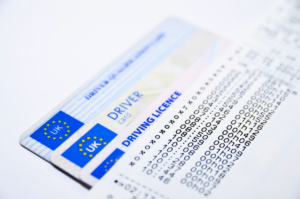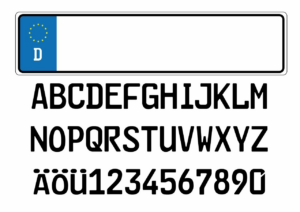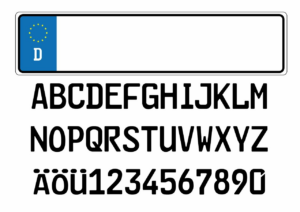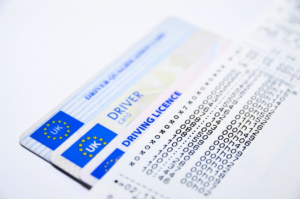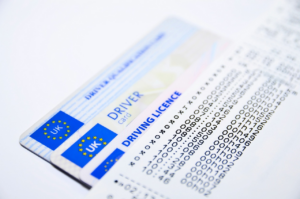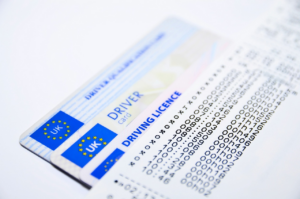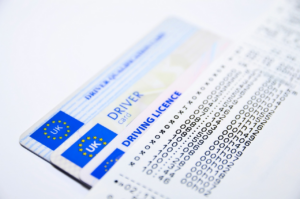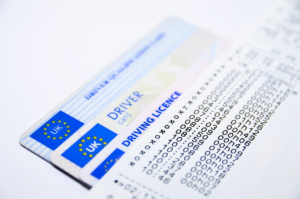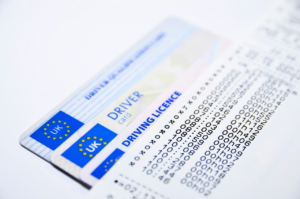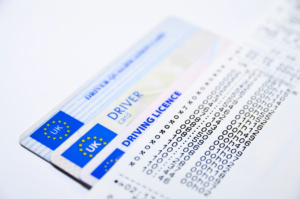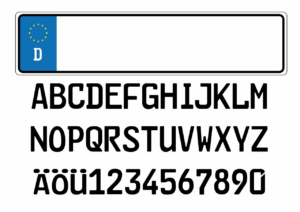Are you looking to get your driver’s license in Nova Scotia? It can be a daunting process, but with the right information and preparation, you can get behind the wheel in no time.
This complete guide will take you through all the steps of getting a driver’s license in Nova Scotia, from the types of licenses available to passing the road test and staying safe on the road.
First, you’ll learn about the different types of driver’s licenses available in Nova Scotia and the requirements for getting each one.
Then, we’ll walk you through the application process, including what documents you’ll need and how to book your road test.
We’ll also provide tips for preparing for the road test and passing it on your first attempt.
Finally, we’ll give you some advice on safe driving practices in Nova Scotia, including what to do in case of an emergency.
With this guide, you’ll have all the information you need to become a licensed driver in Nova Scotia.
Types of Driver’s Licenses Available in Nova Scotia
If you’re looking to hit the road legally in NS, it’s important to know the different types of licenses you can obtain.
The most common one is the Class 5 license which allows you to drive a car, light truck or van. You need to be at least 16 years old, pass a written test, a vision test and a road test to obtain this license. If you’re under the age of 19, you’ll also need to complete a driver education program approved by the NS government.
If you’re looking to operate a motorcycle, you’ll need to obtain a Class 6 license. This license is divided into three categories: Class 6A for motorcycles with an engine displacement of 401cc or more, Class 6B for motorcycles with an engine displacement between 231cc and 400cc, and Class 6C for motorcycles with an engine displacement of 230cc or less. You need to be at least 16 years old, pass a written test, a vision test and a road test to obtain a Class 6 license.
Requirements for Getting a Driver’s License
You’ll need to meet certain requirements before you can legally get behind the wheel and hit the road in Nova Scotia. Here are the steps you need to take:
-
Eligibility: You must be at least 16 years old and have a valid Nova Scotia ID to apply for a learner’s license. In order to apply for a driver’s license, you must have held your learner’s license for at least one year and pass a road test.
-
Knowledge Test: To obtain your learner’s license, you’ll need to pass a written test that covers the rules of the road, traffic signs, and safe driving practices.
-
Medical Requirements: You’ll need to pass a vision test and meet certain medical requirements to get your driver’s license. If you have a medical condition that could affect your driving, you may need to provide additional documentation or undergo a medical examination. It’s important to note that your license may be restricted if you have a medical condition that could affect your ability to drive safely.
Applying for a Nova Scotia Driver’s License
Get ready to hit the open road and experience the freedom of driving with your very own NS driver’s license. Applying for a driver’s license in Nova Scotia is a straightforward process, but it is important to be aware of the requirements and steps involved. Here is a step-by-step guide to help you through the process:
| Requirements | Steps |
|---|---|
| Be at least 16 years of age | 1. Schedule a written knowledge test with a Registry of Motor Vehicles (RMV) office. |
| Provide proof of identity and residence | 2. Pass the written test and pay the fee. |
| Pass a vision test | 3. Schedule and pass a road test with a certified examiner. |
| Pass a written knowledge test | 4. Receive your driver’s license and start driving! |
To apply for a driver’s license, you will first need to schedule a written knowledge test with an RMV office. Once you pass the written test and pay the fee, you can then schedule and take a road test with a certified examiner. If you pass the road test, you will receive your driver’s license and will be ready to hit the open road. Remember to always practice safe driving habits and follow the rules of the road.
Preparing for the Road Test
Preparing for the road test is essential to obtaining your driver’s license and hitting the open road. Here are some tips to help you prepare for the road test:
-
Practice, practice, practice. The more you drive, the more comfortable you’ll be behind the wheel. Make sure to practice driving in different conditions, such as heavy traffic and on different types of roads.
-
Take a driving course. A driving course can help you learn the rules of the road and give you the skills and confidence you need to pass the road test. You can also get valuable feedback from a driving instructor on areas where you need to improve.
During the road test, the examiner will be evaluating your ability to drive safely and follow the rules of the road. Here are some things to keep in mind:
-
Follow all traffic laws. This includes obeying speed limits, stopping at stop signs and red lights, and using turn signals.
-
Check your mirrors and blind spots regularly. The examiner will be looking to see if you’re aware of your surroundings and checking for other vehicles.
-
Stay calm and confident. Nervousness can lead to mistakes, so take deep breaths and remember that you’ve prepared for this moment.
Taking the Road Test
Now it’s time to show off your driving skills and impress the examiner during the road test. Make sure you arrive at the testing center at least 30 minutes before your scheduled test time. This will give you enough time to calm your nerves, review the road rules, and complete any necessary paperwork.
Remember to bring your learner’s permit, proof of insurance, and registration documents. During the test, listen carefully to the examiner’s instructions and follow them to the letter. Keep your eyes on the road, scan your mirrors regularly, and signal whenever necessary. Don’t be afraid to ask the examiner to repeat any instructions you don’t understand.
Stay focused and keep a steady pace, but don’t drive too slowly or too fast. If you make a mistake, don’t panic. Stay calm and correct it as soon as possible. Finally, remember to be courteous and respectful towards the examiner. Good luck!
Passing the Road Test
So you’ve passed your road test, congratulations!
Now it’s time to move on to the next steps.
After passing, you’ll receive your license in the mail within a few weeks.
It’s important to note that your license will expire after a certain period of time, so make sure to renew it before that date to avoid any issues.
What Happens After You Pass
Once you pass the driving test, you’ll receive a temporary paper license that you can use until your permanent license arrives in the mail. This is an exciting milestone, as it means you have officially earned your Nova Scotia driving license!
Here’s what you can expect to happen next:
- Your permanent license will be mailed to you within 14 business days.
- If you have any outstanding fines or fees with the Registry of Motor Vehicles, you’ll need to pay them before your license can be issued.
- Your license will be valid for a set period of time, typically five years, after which you’ll need to renew it.
Congratulations, you’re now legally allowed to drive on your own! Remember to always follow the rules of the road and drive safely.
It’s important to note that your license can be suspended or revoked if you violate any driving laws or regulations. Keep this in mind and always drive responsibly. If you have any questions about your license or driving in Nova Scotia, feel free to contact the Registry of Motor Vehicles for assistance.
Receiving Your License
After passing the driving test, you’ll receive a temporary paper license and can expect to receive your permanent license within 14 business days. This temporary license is valid for 30 days and serves as proof that you passed the test. You should keep it with you whenever you’re driving until you receive your permanent license.
When your permanent license arrives, make sure to check that all the information is correct. If there are any errors or discrepancies, contact the licensing office immediately to have them corrected.
Once you have your license, be sure to carry it with you whenever you’re driving. Remember, driving without a valid license can result in hefty fines and even the suspension of your driving privileges.
Renewing Your License
Now that you’ve received your Nova Scotia driving license, it’s important to know how to renew it. Your license is valid for either five or ten years, depending on your age at the time of issuance.
You’ll receive a renewal notice in the mail about three months before your license is set to expire. To renew your license, you can schedule an appointment online or by phone, or you can walk in during regular business hours at a Service Nova Scotia center.
Make sure to bring your current license, as well as two pieces of identification, such as a passport or birth certificate. You’ll also need to pass a vision test and pay a fee for the renewal process.
Renewing your license before it expires is crucial, as driving with an expired license can result in fines and other penalties. By staying on top of your license renewal, you can ensure that you have the legal right to operate a vehicle on Nova Scotia’s roads.
Tips for Safe Driving in Nova Scotia
If you want to stay safe on the roads in this beautiful province, here are some tips to keep in mind.
First, make sure to always wear your seatbelt and ensure that all passengers do the same. This is the easiest and most effective way to protect yourself in the event of an accident. Additionally, be aware of your surroundings at all times and avoid distractions such as texting or eating while driving.
Second, obey all traffic laws and signals. This includes stopping at red lights and stop signs, yielding to pedestrians, and following the speed limit. It’s also important to maintain a safe distance from the vehicle in front of you, especially during inclement weather.
Lastly, always be prepared for unexpected situations by keeping a first aid kit, flashlight, and other emergency supplies in your car.
By following these tips, you can help ensure a safe and enjoyable driving experience in Nova Scotia.
Frequently Asked Questions about Getting a Nova Scotia Driver’s License
Curious about getting your driver’s license in NS? Check out these frequently asked questions!
First things first, you’ll need to be at least 16 years old and have completed a driver education course before you can apply for a learner’s permit. You’ll also need to pass a vision test and written exam before you can hit the road.
Once you have your learner’s permit, you’ll need to complete a minimum of 12 months of supervised driving before you can take your road test. During this time, you’ll need to log at least 120 hours of practice driving, with at least 20 of those hours being completed at night.
Make sure to practice in a variety of driving conditions and with different supervisors to gain a well-rounded driving experience. When you feel confident in your driving abilities, you can schedule your road test and, if you pass, you’ll receive your NS driver’s license!
Frequently Asked Questions
Can I use my foreign driver’s license to drive in Nova Scotia?
Yes, you can use your foreign driver’s license to drive in Nova Scotia for a limited time. However, if you plan to stay in the province for an extended period, you’ll need to obtain a Nova Scotia driver’s license.
The length of time you can use your foreign driver’s license varies depending on your country of origin. It’s best to check with the Nova Scotia Department of Transportation and Infrastructure Renewal to find out how long you can legally drive with your foreign license.
It’s important to note that if you’re caught driving without a valid license, you could face fines or even have your vehicle impounded. So, make sure you’re aware of the rules and regulations and follow them accordingly.
How long does it take to process a driver’s license application in Nova Scotia?
If you’re wondering how long it takes to process a driver’s license application in Nova Scotia, the answer depends on a few factors. Firstly, you’ll need to complete a driver’s education program and pass a knowledge and road test.
Once you’ve done that, you can submit your application along with the required documents and fees. Processing times can vary depending on the volume of applications, but generally, you can expect to receive your license within 10-14 business days.
It’s important to note that if there are any issues with your application or driving record, the processing time may be longer. Overall, it’s best to plan ahead and allow plenty of time to complete all the necessary steps to obtain your Nova Scotia driver’s license.
Can I take the road test in a rental car?
You’re probably wondering if you can take the road test in a rental car in Nova Scotia. Unfortunately, the answer is no.
The vehicle you use for your road test must be registered, insured, and in good working condition. It must also meet the minimum safety standards set by the province.
If you don’t have access to a suitable vehicle, you may be able to borrow one from a friend or family member. Just be sure to check that it meets all the requirements before scheduling your test.
And remember, practice makes perfect! Spend plenty of time behind the wheel before attempting your road test to increase your chances of passing on the first try.
What do I do if I fail the road test?
If you fail the road test, don’t worry, it’s not the end of the world.
First, take some time to reflect on your mistakes and figure out what you could have done differently.
Then, schedule another test with the DMV and continue practicing your driving skills in the meantime.
It’s important to stay calm and focused during the test, so try to relax and remember everything you learned in your driving lessons.
With persistence and dedication, you’ll pass the test and earn your driver’s license.
Are there any age restrictions for getting a driver’s license in Nova Scotia?
If you’re looking to get a driver’s license in Nova Scotia, you may be wondering if there are any age restrictions.
The answer is yes, there are age restrictions depending on the type of license you want to obtain. For a Class 7 learner’s license, you must be at least 16 years old.
For a Class 5 license, which allows you to drive on your own, you must be at least 16 years old and have held your learner’s license for at least 12 months.
If you’re over the age of 18, you can skip the learner’s license and go straight to a Class 5 road test if you feel confident in your driving abilities.
Keep in mind that there may be additional requirements for certain licenses, such as a medical examination or driving course completion.
Conclusion
Congratulations on getting your Nova Scotia driver’s license! Now that you’ve completed all the necessary steps, it’s time to hit the road and enjoy the freedom and independence that comes with driving.
Remember to always drive safely and obey traffic laws. Keep a safe distance from other vehicles, avoid distractions while driving, and always wear your seatbelt.
Nova Scotia has some beautiful scenic routes, so take your time and enjoy the views. If you ever need a refresher on driving rules and regulations, the Nova Scotia Driver’s Handbook is a great resource to have on hand.
Overall, getting your driver’s license in Nova Scotia may seem like a daunting task, but with the right preparation and practice, it can be a smooth and rewarding experience. So buckle up, stay focused, and enjoy the ride!







